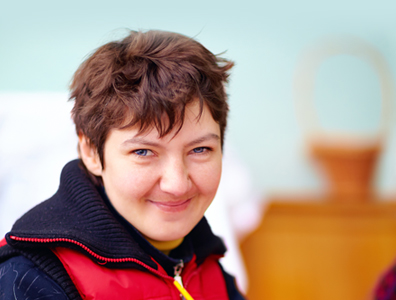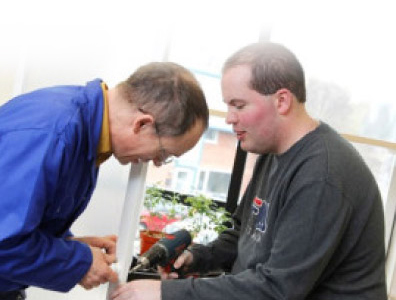Top Tips for Young Adults and Adults With Autism And Learning Disabilities At Christmas
Christmas, it is often associated with celebration, fun and lots of exciting moments. Most of us admit to enjoying the whole Christmas experience, but for those who live with a family member or friend with autism and/or a learning disability, it can be a very different story.
Take a moment to consider those around you who have autism or a learning disability, for these people, young and old it can be a testing time, flashing lights, lots of strong colours, loud music and changing atmospheres. It may be easy for you to handle, but for those who have autism or a learning disability, it can be a little harder and for a few very difficult to grasp.
Below are some tips for your loved one or friend this Christmas.
Sensory overload
Christmas is viewed from a totally different perspective to those who have autism or a learning disability. This is because it can lead to disruptions in routines, a variety of sights and smells, crowds, lights and a house full of noise and people.
One top tip for helping your loved one or friend to have a better Christmas is by scheduling in daily activities, even if it is for just 10 or 20 minutes. This helps to give them some Christmas-free time on a daily basis. Many people with autism often find strong smells associated with Christmas difficult to handle. Why not try introducing new smells to them gradually, also try asking any visitors to hold off on the perfume or deodorant.
Presents
It can be hard choosing the right gift for those who have a learning disability. Finding the right present which is suitable for someone’s ability and development is not easy. It can be uncomfortable explaining to family or friends the reasons why certain gifts are not suitable. As one parent has stated: “It is so difficult to explain to relatives why something they’ve brought isn’t suitable.”
Many people who have autism and/or learning disabilities get a comfort from getting familiar items. Anxiety and confusion is often created when unwrapping presents and opening new things, remember that the expectation to open one present after another can be quite overwhelming.
A good solution to this would be asking friends and family to donate towards a single present. This way a present suitable for the person can be chosen.
Christmas Day
When the big day arrives, people often worry as to how their loved one or friend will react to their behaviour. Talking to the people in advance can help, you can even ask them for their support and let them know that it will make everyone’s experience better as a whole.
If you are visiting your family or friends, ensure that there is a calm room in which the person can go into if it all gets too much. Packing a backpack with the persons favourite belongings can help comfort them if they become over-stimulated.
If you are hosting the gathering yourself, try not to stress to much as the person will pick up on your stress levels. It is best that you keep your plans simple.
If any of these tips have helped you out in any way, let us know on Twitter or Facebook.
Gathering knowledge to help adults with learning difficulties/learning disabilities, behaviour that challenges, mental health, brain injuries and autism is something we’ve been doing for over 20 years. If you have, are close to an adult with learning difficulties/disabilities, autism, mental health and behaviours that challenge and you want them to live and learn for a better future please visit www.skillstank.co.uk or call 0121 308 6555 and ask for Wayne-thank you.




